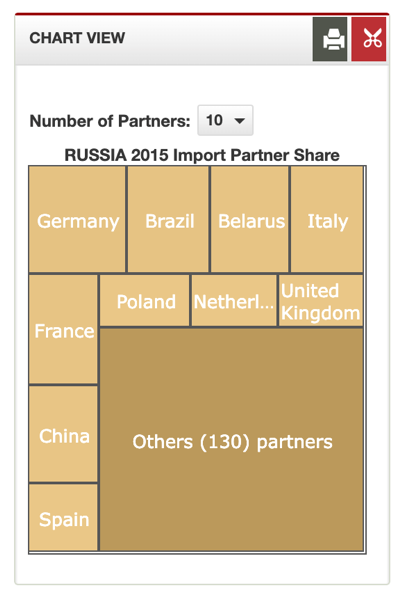Reporter watched RT for a day, here is what he found:
Here’s a breakdown of what I observed on the network.
Russia the “liberator”: Peter John Lavelle, the host of RT’s signature talk program, “Crosstalk,” put it like this: He said that the failed “liberal order” implemented by the West was to blame. “It is so irritating,” Lavelle said on his show. “The way it is being framed: Ukraine’s democracy. Well, it has nothing to do with Ukraine’s democracy — if you can say it even has one… This is about security… There is only security for other countries.”
Missing from coverage: Noticeably left out of the coverage was a focus on how unbearable life has been for Ukrainians whose cities are under attack by unrelenting Russian forces. I did not see much coverage showing the damage that Russian forces have caused as they try to seize control of the country. Or coverage about the residents of cities such as Kyiv who live in terror and sleep underground in bomb shelters. Or coverage about the hundreds of thousands who have simply chosen to flee the country for their safety. Those inconvenient facts were not the emphasis of the narrative RT pushed.
Also left out of RT’s coverage: The ramifications the West’s sanctions and other actions are having on Russia’s economy.
src: click
Liberator instead of aggressor or warcriminal - being the pretext to incorrectly suggest, that russia hasnt violated international law.
Apart from that, what the journalist is missing is images of people suffering in cities that have been attacked by Russia, especially in Kiev.
The security politics angle aspect that irritates the author, also is pushed - as a response, and in service of future strategic orientation, in western media. (“The EU is learning the language of Power” (The german newspaper in it links an ECFR commentary “from the perspective of a millennial”, thats actually quite fitting.)) - although with it being seen through a very different lens, naturally.
So far thats the entirety, of what that journalist has found in terms of war propaganda being in place.
So the quick summary would be that CNN expected russian state financed media to report, that Putin is the aggressor, did violate international law, tell people that this was a war crime, to not implement a reversal on the publicized image of victims/aggressors and show images of people suffering, while their army was taking towns by force (as well as putting cities under siege).
Oh, and russian state financed media also didnt report on financial sanctions that are aimed at turning public opinion. (Russian news agencies do in part but only to a very vailed extend. (I’m not linking examples.) Interest rates rising from 10 to 20%, limits on money withdrawal for individuals, bans on exchanging amounts larger than 10.000 USD into foreign currencies - are effects they are witnessing.)
Next, CNN might find out that _if_ the Kyiv government building is taken over, a ponzi government might declare Ukraine to be part of the russian federation, but that RT is not telling the world that the legitimate ruler of the country is still battling to restore Ukraines borders prior to the russian invasion.
Also CNN has found that russians are bracing for a dramatic shift in their standard of living, because:
On Tuesday, Apple said it had stopped selling all of its products in Russia, following similar moves by car and truck makers including Ford, General Motors, Volvo, Renault and Jaguar. Western oil giants Shell and BP ended joint ventures with Russian counterparts earlier this week. Disney, along with WarnerMedia, CNN’s parent company, are pausing the release of films in Russia.
Compounding the economic pain, two of the world’s biggest container shipping companies, Maersk and MSC, said they are halting cargo bookings to and from Russia, with the exception of food, medicine and humanitarian supplies.
Those departures, combined with the plunging value of the ruble, threaten to choke Russia’s economy and deprive Russians of crucial foreign goods such as cars, cellphones, clothing and food. Although Russia’s economy is primarily driven by exports of oil and natural gas, it relies heavily on imports of finished consumer products.
Russia’s currency plunged by about 25% Monday[…]
src: click
25% is also about the exchange rate drop to USD in the last month (overall), China just switched from refusing to call the invasion an invasion to the following stance:
[Foreign Minister] Wang said the world’s second largest economy also “deplores the outbreak of conflict between Ukraine and Russia,” according to a statement posted on the Ministry of Foreign Affairs website. The remarks were published after a call between Wang and Ukrainian Foreign Minister Dmytro Kuleba, the most senior exchange since Russia’s Vladimir Putin launched the invasion Thursday.
Wang also acknowledged the conflict was a “war,” rather than a “special military operation” as described by Russia. [Seen as potential signaling, that china could be interested in assuming the role of a peacemaker.]
src: click
and Russias Food import dependencies as of 2015 (according to the worldbank), looked like this (- but then Russia is also still delivering fossile fuels to some of those countries, the amount of which will contract over the following ten years):

src: click In addition russia is also a large food exporter. see: click
edit: After the block of cargo shipments from and to russia by MSC and Maerks, a chief executive of a danish trading company went on record with the following statement:
Meanwhile, Lars Jensen, chief executive and partner of Vespucci Maritim, told Capital.com that the latest suspensions are not surprising.
“It is a matter of risk management. Whilst it is still perfectly possible to ship cargo to Russia, there is significant uncertainty as to the development of further sanctions. If sanctions suddenly prevent operations into Russia this means that thousands of containers in the supply chain to Russia will get stuck in key ports in Europe and that will worsen congestion problems.
src: click

